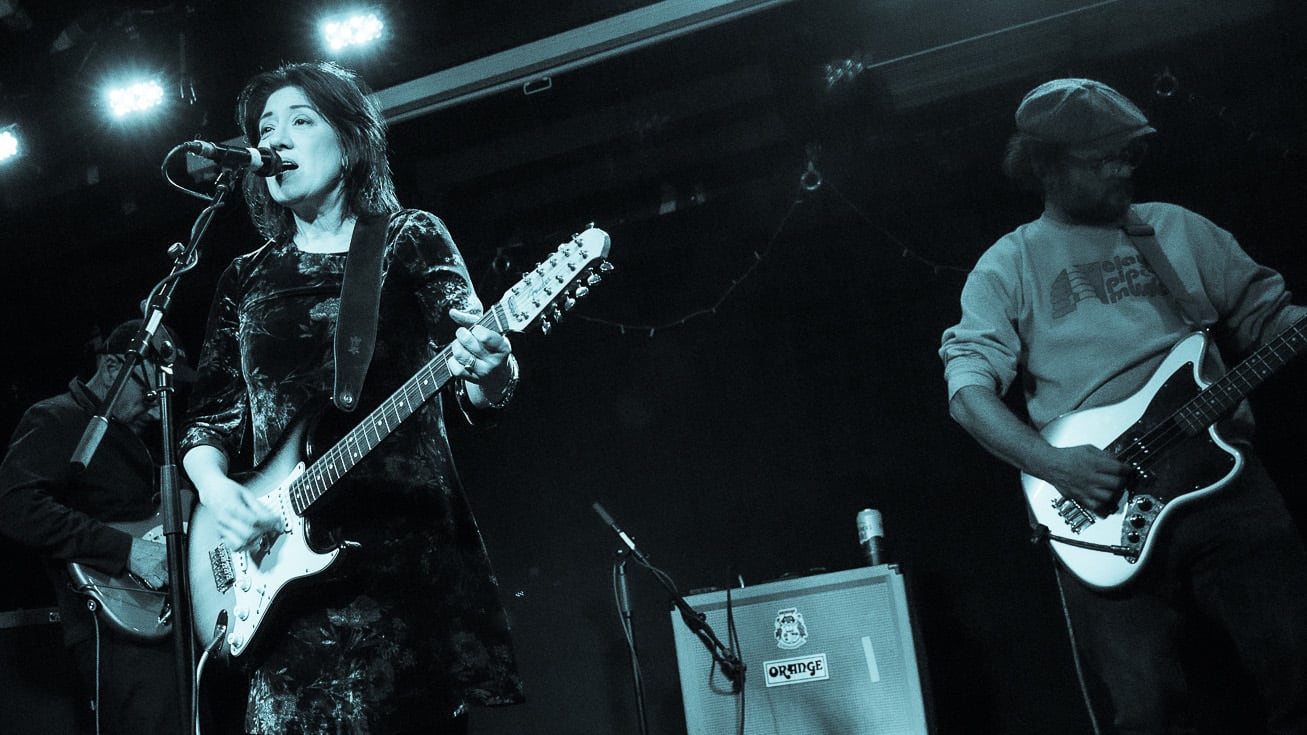Miki Berenyi, formerly of ‘90s Brit dream pop/shoegaze darlings Lush and later Piroshka, has written a staggeringly honest and wildly entertaining autobiography, Fingers Crossed: How Music Saved Me From Success (Mango, 384 pages, $29.99), published in the U.S. in April. The book vividly recalls her colorful and tumultuous childhood, and her time in Lush. The band released three albums and a string of hits, but the group broke up in 1996 following the suicide of bandmate Chris Acland (the band briefly reunited in 2016). Since then, Berenyi has been in and out of the music world—taking time for a stint working in publishing and raising a family—but she’s back with the Miki Berenyi Trio, her stunning and unearthly new band that hits Portland on a brief U.S. tour next week.
WW: At times, your book was shades of Paper Moon when you and your cunning dad and grandmother go on a road trip to Hungary. Have you thought about a movie version?
Miki Berenyi: That’s so cool that you cited Paper Moon—I totally loved that film, and yes, the father-daughter relationship resonated! I’ve had a few meetings with film people, but I got the vibe that it was the “woman in ‘90s music biz” element that was likely the most sellable aspect, which I’m not really interested in. Anyone making a 24 Hour Party People for the Britpop era doesn’t need my book to do it.
How much fun are you having playing music these days?
A lot, actually, which continues to surprise me. I was so wrung out by the disintegration of Lush and Chris’ death in 1996 that I had to close that chapter of my life completely and start again. With MB3, we’ve deliberately kept it nimble so we can record music and play shows whenever we want.
What’s satisfying about it at this stage?
With Lush, there was a perpetual drive to “get to the next stage”—bigger gigs, selling more albums, “breaking” America. You end up feeling like you’re being fed into a machine, chasing a status that will only be achievable if you change everything about yourself and your music to keep everyone else happy. The music industry has changed. There’s no money, or certainly not enough to maintain a career, and at 57 [I] don’t have the energy I had in my 20s. I’m not compelled to chase some prize that I have no hope of winning. The pressure’s off and we can just play the shows we want to play and simply enjoy making music.
I love your voice—how has it changed?
I enjoy singing, but I am hyperconscious of my limitations and incapable of being objective about it. Sure, if someone criticized me (and many have) saying my voice is shit, I’d lash back and say that it’s no better or worse than a lot of other voices. I’ve never listened to one of my songs and thought, wow, I sound amazing. The very thought makes me cringe!
You wrote about building your confidence—how confident are you about your music?
I combat my lack of confidence by off-loading responsibility via collaboration and support. MB3 is a very collaborative band, as Piroshka was. Songs have started from different people, then been rearranged and embellished by others, lyrics changed. We are all invested, rather than fighting “my song/your song” battles.
A new album is coming by the Miki Berenyi Trio. What can we expect?
With no drummer, we’ve experimented more with the programming side. [Bandmate Oliver Cherer] brings his own unique contribution to the songwriting and recording.
Tell us the truth: Have you ever actually gazed at your shoes while playing?
Nope. Too busy looking at the guitar fretboard to check I’ve got my fingers in the right place, or making sure I’ve not switched on a pedal that I shouldn’t have!
SEE IT: Miki Berenyi Trio plays at McMenamins Mission Theater, 1624 NW Glisan St. 503-223-4527, mcmenamins.com/mission-theater. 8:30 pm Monday, June 3. $35, $30 in advance.
